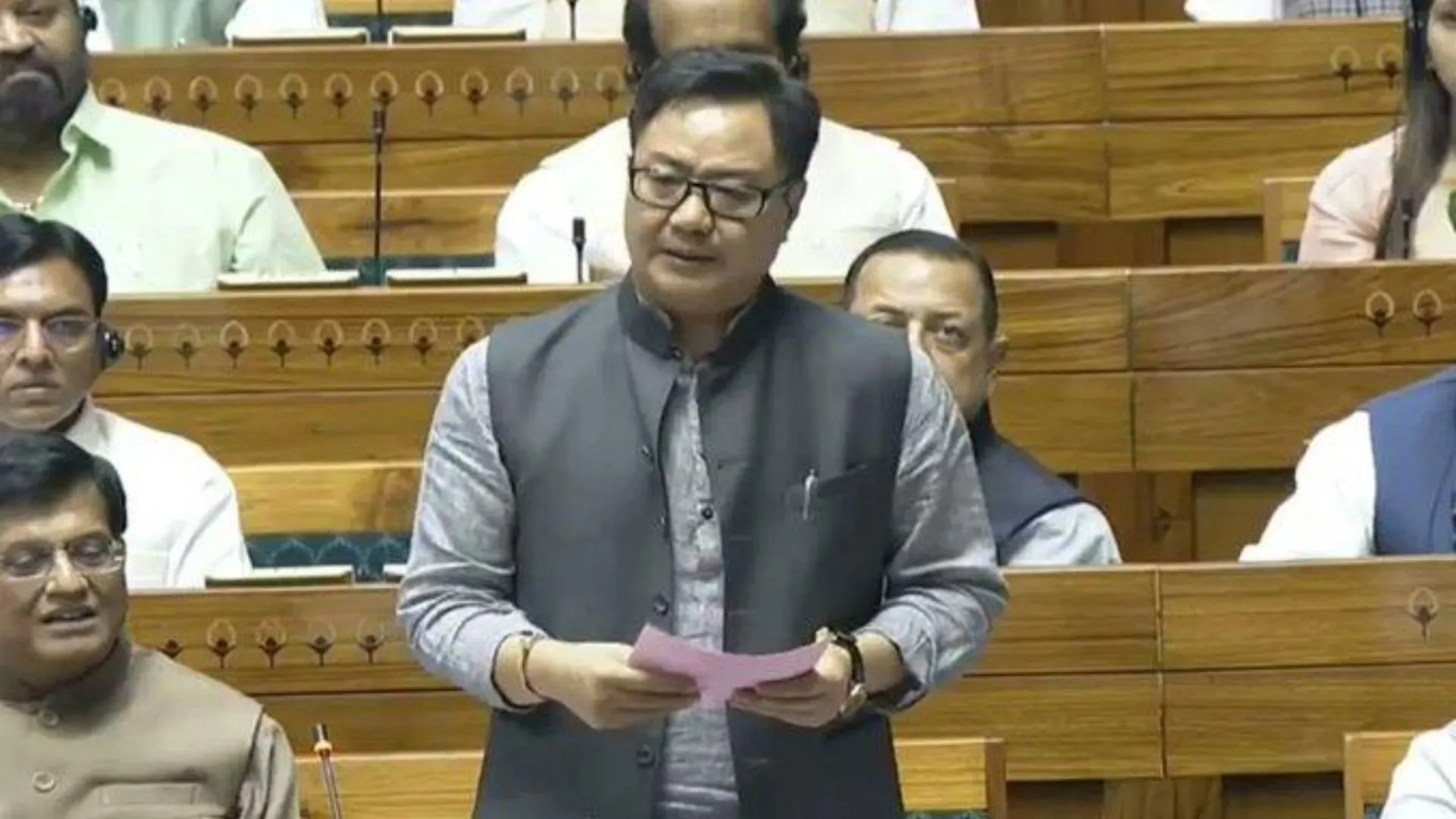Union Parliamentary Affairs Minister Kiren Rijiju on Thursday moved a motion for the consideration of the Waqf (Amendment) Bill of 2025 and the Musalmaan Wakf (Repeal) Bill in the Rajya Sabha. The proposal, however, faced pushback from opposition members, who raised concerns about its potential implications.
Rijiju Highlights Sachar Committee’s Findings
While addressing the upper house, Rijiju referenced the Sachar Committee report, which had earlier recommended the expansion of the Central Waqf Council and state Waqf boards to ensure greater inclusivity. He highlighted the significant number of Waqf properties in the country and their estimated earnings over the years.
“As of today, there are 8.72 lakh Waqf properties. In 2006, if the Sachar Committee had estimated the earnings from 4.9 lakh Waqf properties at Rs 12,000 crore, then you can imagine the income these properties must be generating now. The Sachar Committee also recommended that the Central Waqf Council and state Waqf board should be broadened to make them inclusive. The committee also recommended specific steps to be taken for the (benefit) of women and children,” Rijiju stated.
Addressing Infrastructure and Governance Challenges
Rijiju also invoked recommendations made by the Joint Parliamentary Committee (JPC) led by senior Congress leader K. Rahman Khan. He emphasized the need to rectify key structural issues within the Waqf board, including its infrastructure and workforce shortages.
“A Joint Parliamentary Committee under the leadership of K. Rahman Khan, who served as a minority affairs minister, raised the issue regarding infrastructure (of Waqf) while pointing out the fewer manpower and funds. He said that the entire thing is focused on appointing or removing the Mutawalli,” Rijiju noted.
Appealing to the Congress and its allies for support, Rijiju reassured that all previously suggested improvements had been incorporated into the bill.
“All these recommendations given earlier have been incorporated in the newly amended bill. These committees were under UPA and Congress. Thus, I appeal to the Congress party and its allies to support the Waqf Amendment Bill 2025,” he urged.
Stakeholder Consultations and Nationwide Feedback
The minister asserted that the bill had been drafted after extensive consultations with stakeholders across the country. He stated that 284 organizations had shared their opinions, and over one crore people had submitted memorandums expressing their views on the matter.
“Before the Joint Parliamentary Committee was formed, many said that the consultation regarding it wasn’t enough. I want to say that before the Waqf Amendment Bill was introduced, the Ministry of Minority Affairs prepared the bill after taking in confidence the stakeholders, including the minority commission of the state governments,” Rijiju said.
He further highlighted the extensive outreach efforts undertaken in the drafting process.
“The JPC has done comprehensive work, more than any other JPC formed previously. In totality, 284 organizations across different regions gave opinions. Over one crore people submitted memorandums to register their opinions to the JPC and the ministry. This is historic,” he added.
As the debate continues, the government seeks to secure approval for the bill while addressing concerns raised by opposition parties. The final decision in the Rajya Sabha will determine the fate of the proposed amendments.
(With Inputs from ANI)
ALSO READ: MK Stalin And DMK Leaders Wear Black Ribbon In Protest To Waqf Amendment Bill























